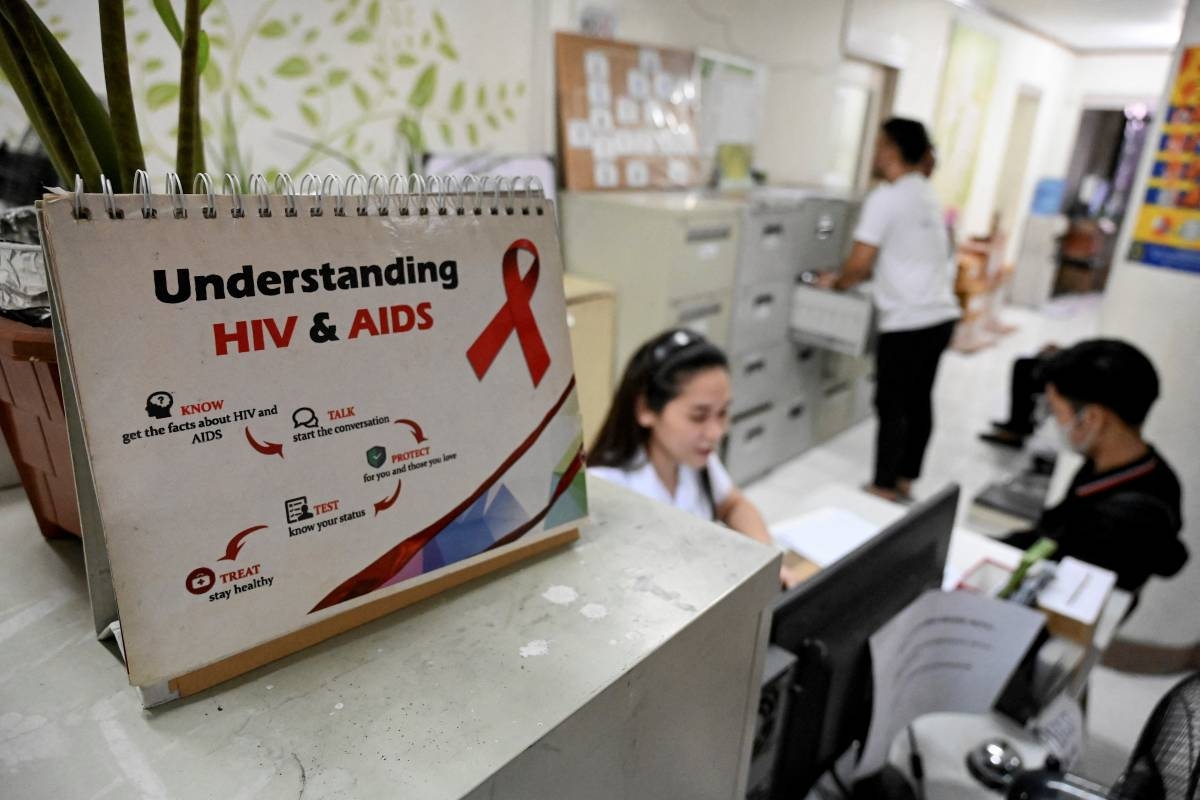(UPDATE) HIV infections are soaring in the Philippines, with experts attributing the rise to online dating, inadequate sex education, and conservative attitudes prevalent in the deeply religious country.
While less than 1 percent of the country’s more than 110 million people have been diagnosed with HIV, UN data reveals that the Philippines has one of the world’s fastest-growing epidemics.
Philippine health officials are sounding the alarm as the number of people testing positive for HIV each year continues to accelerate. They warn that the caseload could more than double to over 400,000 by 2030.
The majority of new infections are occurring among men who have sex with men and transgender women. Alarmingly, there is also a growing number of teenagers affected.
“It’s alarming because it shows that we’re not yet controlling the epidemic,” said Van Phillip Baton, an adviser for the Joint United Nations Program on HIV/AIDS (UNAIDS) in the Philippines. Baton further warned that without immediate action, the virus could spread to the general population.
Experts point to social media and online dating sites as contributors to the increase in HIV infections over the past decade. These platforms have made it easier for people to find sexual partners, leading to higher rates of risky behavior.
However, despite increased sexual activity, particularly since the lifting of Covid-19 restrictions, there has not been a corresponding increase in the use of condoms or pre-exposure prophylaxis drugs to prevent infection, according to Baton.
Ignorance plays a significant role in the rising HIV epidemic. A sexual health study conducted by the University of the Philippines’ Population Institute in 2021 revealed that more than a third of young Filipinos aged 15 to 24 do not believe that using condoms can reduce the risk of acquiring HIV. Additionally, the proportion of young Filipinos who have heard of HIV and AIDS has fallen to 76 percent, the lowest level since 1994.
“This indicates the urgent need to disseminate more information to correct the misconceptions about HIV/AIDS among young people,” said Vicente Jurlano, a professor at the Population Institute.
In 2013, a family planning law was enacted in the Philippines despite opposition from the Catholic Church. This law mandated that government health centers distribute free condoms and that sex education be taught in schools. However, individuals under the age of 18 require parental permission to receive condoms.
Furthermore, the education department only began implementing “comprehensive sexuality education” in 2018 due to legal delays, with the primary focus on preventing teenage pregnancy. Rosalie Masilang of the department’s curriculum bureau stated that HIV is included in the sex education curriculum, and students are informed about condoms. However, they are not taught how to use them.
Unfortunately, many schools still prohibit the discussion of condoms or sex, which further hinders efforts to combat the spread of HIV.
It is evident that a multi-faceted approach is necessary to address the rising HIV epidemic in the Philippines. This includes comprehensive sex education programs that dispel misconceptions, promote condom use, and educate young people about the risks of HIV. Additionally, efforts should be made to challenge conservative attitudes and ensure that accurate information is accessible to all, regardless of age or religious beliefs.
Source: The Manila Times







